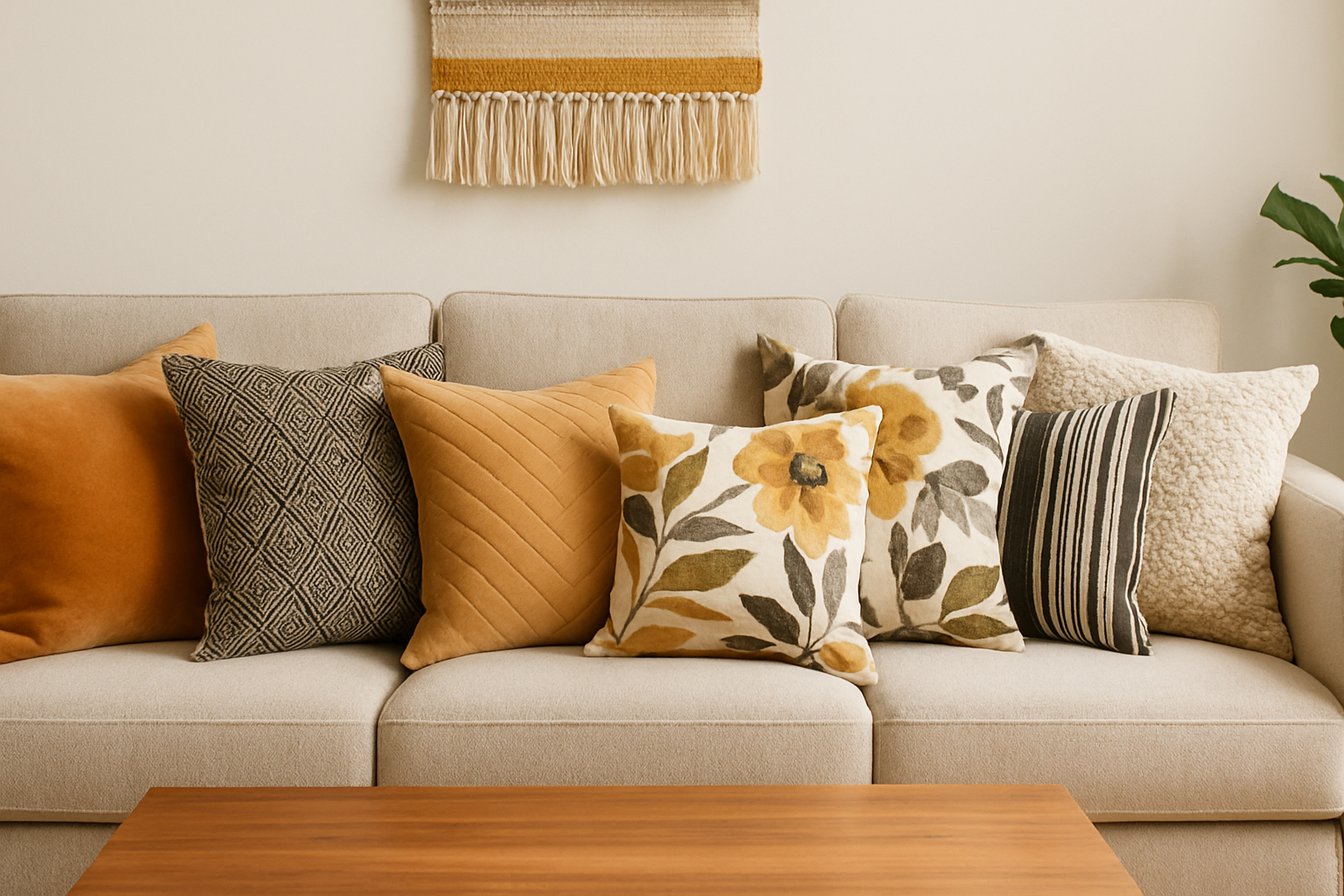How to Choose and Style Throw Pillows Like a Designer
Throw pillows may be small, but they can make a big impact on your space. Whether you’re refreshing your sofa, styling a bed, or cozying up a reading nook, the right throw pillow combination adds color, texture, and personality. Here’s how to select, mix, and arrange throw pillows like an interior designer.
Step 1: Start with a Color Palette
Choose 2–3 main colors to guide your selection. You can:
- Pull colors from a rug, artwork, or curtains
- Use a mix of neutral tones with one pop of color
- Coordinate with the seasons (warm tones in fall, bright in summer)
Keep the palette cohesive across the room for a polished feel.
Step 2: Mix Patterns and Solids
Mixing patterns adds interest — just do it with purpose. Use this formula:
- One solid or textured pillow
- One bold pattern (like floral or abstract)
- One smaller-scale pattern (like stripes or dots)
This balance keeps things dynamic but not overwhelming. If you’re unsure, start with two matching pillows and add one contrasting option in the center.
Step 3: Play with Texture
Texture is often more important than color when it comes to visual depth. Combine different materials like:
- Linen
- Velvet
- Knit or crochet
- Faux fur
- Leather or suede
A mix of textures makes a neutral setup look layered and luxe.
Step 4: Consider the Shape and Size
For a sofa, the most common pillow sizes are:
- 20×20″ or 22×22″ for standard back pillows
- 18×18″ for accents
- Lumbar pillows (12×20″ or 14×36″) for the center or sides
Beds benefit from larger pillows in the back and decorative ones up front. Use an odd number for a more relaxed, designer look — like three or five on a sofa.
Step 5: Use High-Quality Inserts
Don’t underestimate the importance of the pillow insert. Opt for:
- Down or down-alternative inserts for a plump, flexible shape
- Inserts 2 inches larger than the cover for a full look
- Chop test: A quick chop to the top of the pillow gives a designer “V” shape
Avoid flat or lumpy inserts — they make even beautiful covers look cheap.
Step 6: Think About Function
Style meets comfort. Consider where the pillows are going:
- Living room: Durable and comfortable — easy to move or lean on
- Bedroom: More decorative — layering is key
- Accent chairs: One lumbar pillow or small square works best
Washable covers are a smart choice for high-traffic areas.
Step 7: Arrange with Balance in Mind
You don’t need symmetry, but there should be visual balance:
- Place larger pillows on the ends and work inward
- Mix heights and shapes
- Vary color and pattern while staying within your palette
Try placing pillows in a pyramid shape (largest in the back, smallest in front) for easy layering.
Step 8: Change with the Seasons
Switching pillow covers is one of the easiest seasonal updates you can make. Try:
- Spring/Summer: Light linens, cool blues, soft pastels
- Fall/Winter: Velvet, wool, deeper tones like rust or navy
Keep the inserts and just swap out the covers for an affordable refresh.
Final Touch: Make It Yours
Your throw pillows are an opportunity to show your personality. Whether you’re drawn to boho textures, bold prints, or calm neutrals, let your choices reflect your style.
They’re the finishing touch that makes a space feel lived-in, warm, and thoughtfully styled.
